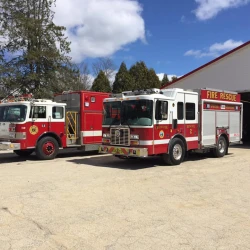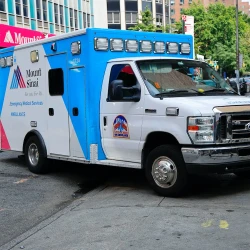New Hampshire takes heart health seriously. For many years, the state has recognized the importance of Automated External Defibrillators (AEDs) in saving lives during sudden cardiac emergencies. This has led to specific state regulations governing the placement, registration, and usage of AEDs. But did you know that these devices must be registered and users trained in CPR? Let's explore New Hampshire's laws relating to AEDs.
AED Registration - New Hampshire RSA
In New Hampshire, the law requires AEDs to be registered with the state. This requirement is set forth in the New Hampshire Revised Statutes Annotated (RSA) and ensures that AEDs can be quickly located during an emergency. RSA 153-A:32 and RSA 153-A:33 established an "AED Registry" within the Department of Safety, Bureau of Emergency Medical Services (NHBEMS), for the purposes of registering AED’s being utilized within the state.
When a person calls 911 in New Hampshire, emergency services can direct them to the nearest registered AED. This efficient system saves crucial seconds or even minutes in the event of a cardiac arrest, where every moment counts.
The registration process requires essential details about the location and accessibility of the AED, helping dispatchers provide precise instructions to the caller. This law is a model of responsible regulation, aiming to maximize the lifesaving potential of AEDs across the state.
Training Requirements
New Hampshire's commitment to heart health doesn't stop at registration. The state also requires organizations with AEDs to train individuals likely to use them in CPR. Proper training ensures that bystanders can perform effective CPR, use the AED correctly, and increase the victim's chances of survival.
Training in CPR and the correct usage of AEDs must be consistent with nationally recognized guidelines. These can include programs from the American Heart Association or other reputable organizations. Ensuring this level of training creates a safety net across New Hampshire, where lay responders can act promptly and confidently during a cardiac emergency.
Compliance and Impact
These regulations ensure that New Hampshire's residents and visitors benefit from a robust emergency response system, harnessing the full potential of AEDs. Compliance with the registration and training requirements is essential for organizations that install AEDs, as failure to do so may result in penalties.
Moreover, the state's approach to AED registration and training has shown to make a positive impact. It empowers bystanders, saves lives, and underscores New Hampshire's commitment to public health and safety.
Conclusion
New Hampshire's AED registration and training requirements are about more than just compliance with the law. They symbolize a community-wide effort to create a network of lifesavers, ready to act when needed. The RSA's focus on AED registration, coupled with the mandatory CPR training, sets an example that emphasizes proactive health and safety measures. Through collaboration and education, New Hampshire continues to be a leader in emergency heart care, ensuring that the chances of survival are as high as possible for those experiencing sudden cardiac emergencies.





